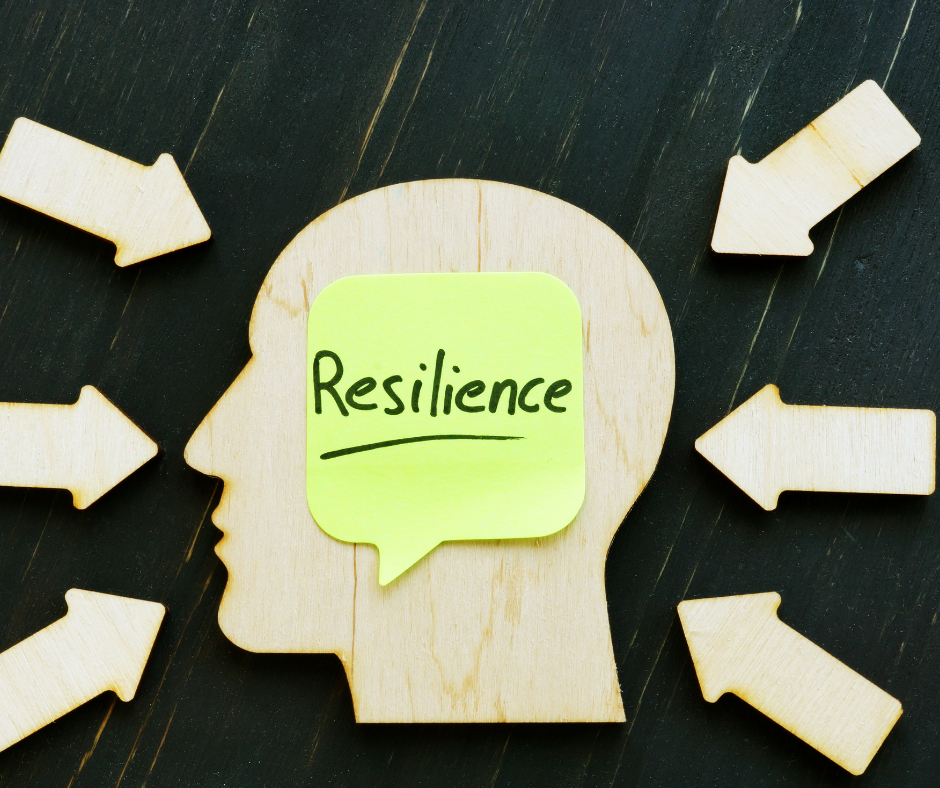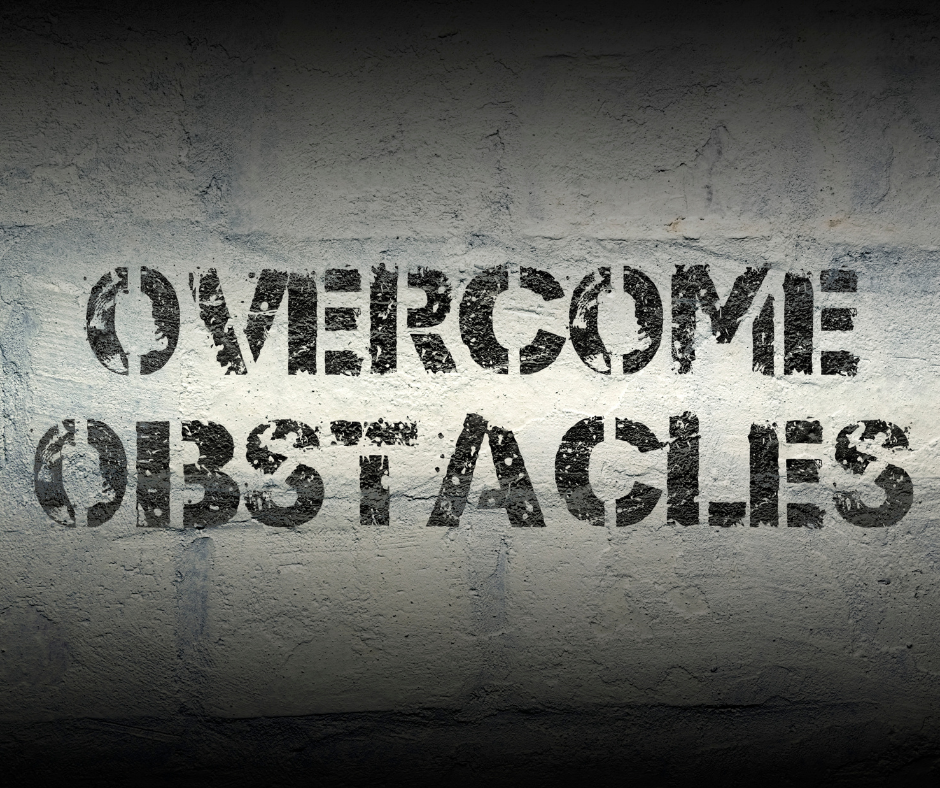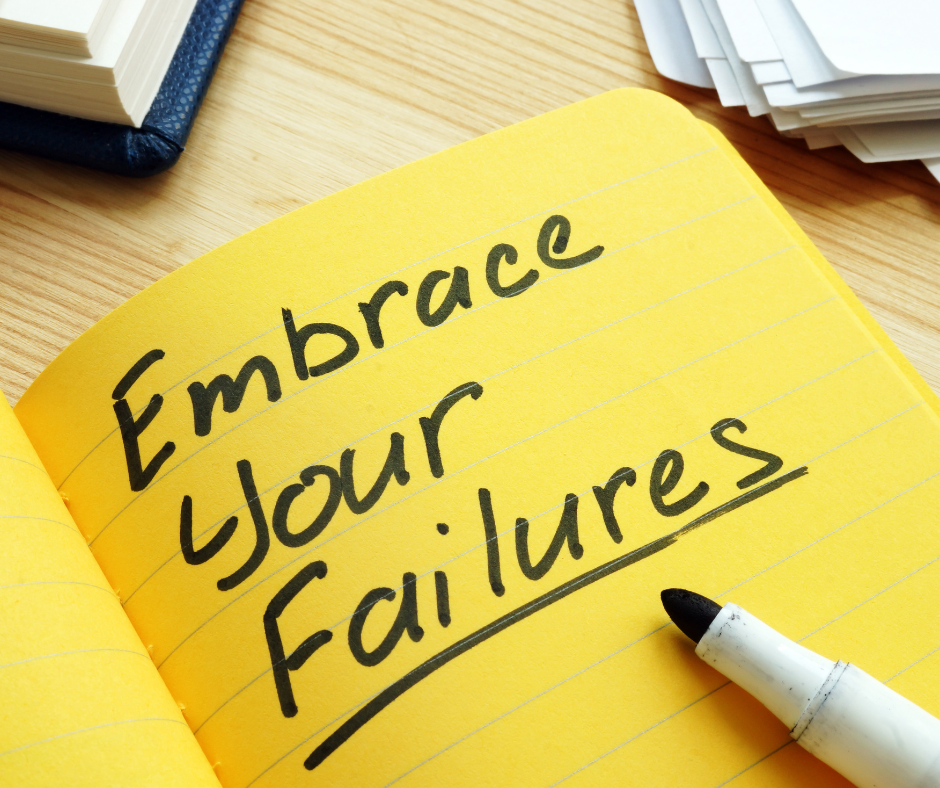The world of business is evolving rapidly, and the opportunities available today are unlike any other time in history. If you’re looking to start a business in 2025, you don’t have to reinvent the wheel. Thanks to Seed of Ideas (SOI), you can now access ready-made, proven business models that are primed for success in today’s market. Seed of Ideas is a platform that offers fully supported, ready-to-run businesses with an established ecosystem, minimizing your risk while maximizing your potential for growth. SOI brings you access to a range of exciting projects that have already been tested, fine-tuned, and proven to meet the needs of the present and future market. With an extensive support system in place, including mentorship, training, and global connections, you will be able to bypass the typical learning curve and start making an impact immediately. These businesses not only provide you with the tools you need to succeed, but also ensure that you’re visible in the market before you even officially launch. So, what are you waiting for? If you want to be part of the next generation of successful entrepreneurs and write your “Seed of the Story,” now is the time to act. Here are the top 10 ready-to-run businesses in 2025 that you can get started with through Seed of Ideas. 1. Global Ghanaian Chamber: As the world becomes more connected, there is a growing need for international networks that help businesses expand globally. The Global Ghanaian Chamber (GGC) is a thriving community of entrepreneurs and businesses focused on creating opportunities within Ghana and across the globe. Through GGC, you can tap into an ecosystem that fosters cross-border trade, investment, and collaboration. With an established network and a growing demand for global business connections, this platform is ideal for entrepreneurs looking to scale rapidly. Action Step: Join GGC and leverage its network to connect with like-minded entrepreneurs and global investors. Become a part of the international business community and expand your business worldwide. 2. Global Business Network (GBN): Networking is one of the most important components of business growth. The Global Business Network (GBN) offers a comprehensive platform that connects entrepreneurs, business leaders, and investors from all over the world. Whether you’re looking to collaborate, invest, or learn from industry leaders, GBN is a world-class ecosystem designed to accelerate your business journey. Action Step: Sign up with GBN today and access a world of business opportunities. Use the platform to network, build strategic partnerships, and gain invaluable knowledge from global thought leaders. 3. MediTalk Connect: In today’s digital age, healthcare and wellness businesses are booming. MediTalk Connect is a platform that bridges the gap between healthcare professionals and patients, offering a range of services, including telemedicine, health consultations, and wellness support. This platform is poised for massive growth, particularly as the demand for online health services continues to rise. Action Step: Tap into the growing healthcare sector by launching your own telemedicine or wellness business through MediTalk Connect. Start today with a proven model that offers continuous support. 4. Invest Kashmir: Kashmir, a region rich in natural resources, culture, and history, is quickly becoming a hotspot for investment. Invest Kashmir connects investors with business opportunities in the region, spanning sectors such as tourism, agriculture, and technology. With the full support of SOI’s ecosystem, you can tap into this promising market and begin making a difference. Action Step: Take advantage of the opportunities available through Invest Kashmir. Launch a business in the region, whether it’s in real estate, hospitality, or tech, and leverage local resources to create something remarkable. 5. Kashmir Got Talent: The entertainment and talent industry is thriving worldwide, and Kashmir Got Talent offers an exciting business model to help you tap into this lucrative market. This platform provides a unique opportunity to invest in local talent, create events, and build a community that celebrates creativity and innovation. Action Step: Use Kashmir Got Talent as a springboard to start your own talent-based business, whether it’s organizing events, managing artists, or creating a media platform to showcase emerging stars. 6. Make My Product: Every business needs a product, but not every entrepreneur has the expertise or resources to create one. Make My Product offers an end-to-end solution for businesses looking to create physical or digital products. With this platform, you can get your product developed, branded, and ready for market with minimal effort on your part. Action Step: Whether you have a product idea or need help bringing your vision to life, Make My Product has the tools and support you need. Start your product-based business today and watch it grow. 7. Ready For Camp: As the world becomes more adventurous and outdoor-oriented, camping and outdoor experiences are rapidly gaining popularity. Ready For Camp offers a business model that connects individuals with unique camping experiences, from fully equipped campsites to guided outdoor tours. This is a thriving industry with massive growth potential. Action Step: If you’re passionate about the outdoors, consider launching a camping business through Ready For Camp. Offer fully supported camping packages, adventure tours, and more to attract customers looking for outdoor experiences. 8. Wonder Kids Academy: Education and childcare are two industries that continue to thrive, especially as parents increasingly seek quality, accessible education for their children. Wonder Kids Academy offers a proven model for starting a kids’ education and development center. From early childhood education to after-school programs, this platform helps you launch a successful educational business. Action Step: Start your own educational venture with Wonder Kids Academy. Tap into the growing demand for quality childcare and education by offering structured, engaging learning experiences for children. 9. World Influencers: In the digital age, influencers hold significant power in shaping consumer behavior. World Influencers provides you with a ready-made ecosystem to enter the influencer marketing business. Whether you want to work with social media influencers, create campaigns, or run an agency, this platform offers everything you need to succeed. Action Step: Launch your influencer marketing business with World Influencers by
From Failure to Empowerment: Building Resilience in Women
Failure is a universal experience, but for women, especially those who have endured significant hardships, it can feel particularly defeating. Yet, it is in these moments of failure that the seeds of empowerment are sown. Embracing Failure as a Catalyst for Change Failure is not the end of the road—it’s a catalyst for change. For women, learning to embrace failure is key to unlocking their full potential. It’s about seeing each setback as an opportunity to learn, grow, and become stronger. Steps to Empowerment Adopt a Growth Mindset: View failure as a stepping stone, not a stumbling block. Adopting a growth mindset allows you to see the potential in every setback. Cultivate Resilience: Resilience is about bouncing back from failure and using it as a foundation for future success. Practice resilience by setting small, achievable goals and celebrating your progress. Seek Out Role Models: Surround yourself with women who have overcome failure and emerged stronger. Their stories will inspire and motivate you on your journey. Take Action Despite Fear: Don’t let the fear of failure stop you from pursuing your dreams. Take action, even when you’re scared, and trust in your ability to overcome any obstacles. Take Action Now Empower yourself today by embracing failure as a natural part of your journey. Identify an area in your life where you’ve experienced a setback, and take one small step toward overcoming it. Share your story with others, and inspire them to embrace their failures as well. Together, we can build a community of empowered, resilient women.
Empowering Widows Through Entrepreneurship and Support
In a world striving for equality and justice, there exists a demographic that continues to face immense challenges: widows. Too often, they are marginalized, forgotten, or left to navigate the world alone, burdened by financial insecurity and societal stigma. Yet, as Dr. Bilal Ahmad Bhat eloquently points out, widows don’t seek pity—they seek opportunities. They need a seed, a spark of guidance, and a platform to transform their lives. Recognizing this need, Dr. Bhat has pioneered efforts to empower widows globally, particularly through his platform, “Voice of Widows – Turning Sorrows into Strength.” The initiative is dedicated to enabling widows to become independent and self-reliant, helping them channel their pain into purpose and their sorrows into strength. The Birth of a Vision: Ghana’s Influence During a visit to Ghana, Dr. Bhat had a life-changing experience. Meeting widows from various walks of life, he was deeply moved by their stories of struggle, resilience, and perseverance. Many shared heartbreaking accounts of how they were left without support, resources, or hope. Yet, despite their pain, they displayed an unyielding desire to rebuild their lives. These encounters inspired Dr. Bhat to take action. He realized that what these women needed was not charity but empowerment. The idea of providing widows with a “seed of opportunity” began to take shape. This seed could be in the form of ready-made business models, mentorship, or simply a platform to pursue their passions. This vision culminated in the launch of Voice of Widows, a platform designed to support widows globally. The initiative focuses on creating sustainable opportunities, providing skills training, and fostering entrepreneurial growth. By turning their sorrow into strength, Dr. Bhat believes these women can reclaim their lives and contribute meaningfully to society. Entrepreneurship: The Key to Independence Dr. Bhat’s philosophy revolves around making widows independent. He argues that independence is not just a solution but a fundamental right for every individual. Through entrepreneurship, widows can achieve financial security, self-confidence, and a renewed sense of purpose. “Seed of Ideas,” another concept championed by Dr. Bhat, is central to this philosophy. It provides widows with access to resources, guidance, and opportunities to establish their own ventures. Whether it’s starting a small business, pursuing a creative passion, or managing a ready-made enterprise, the platform enables widows to follow their dreams and become self-reliant. A Global Movement: “Go Daughters – The Pride of Humanity” Dr. Bhat’s work is complemented by other impactful initiatives like Go Daughters – The Pride of Humanity, founded by Irtaza Bilal, Ifra Bilal, and Ifza Bilal. This platform focuses on empowering women and girls, helping them realize their potential and overcome societal barriers. Together, these initiatives form a powerful network of support for widows and women worldwide. The collaboration between Voice of Widows and Go Daughters exemplifies how collective efforts can create significant change. By providing widows with the tools they need to succeed, these platforms are not only transforming individual lives but also uplifting entire communities. Core Values: The Foundation of Change Dr. Bhat emphasizes the importance of core values in driving sustainable change. These values—resilience, self-reliance, and community support—are the foundation of his initiatives. He believes that widows, like any other group, thrive when provided with a clear framework to follow and a community that believes in their potential. By instilling these values, Voice of Widows ensures that widows are not only given opportunities but also equipped to make the most of them. This approach creates a ripple effect, empowering widows to inspire and uplift others in their communities. The Power of Partnerships and Collective Action Dr. Bhat’s vision extends beyond individual platforms. He advocates for a global movement where governments, organizations, and individuals come together to support widows. Collaboration, he argues, is essential to address the systemic challenges widows face. Through Voice of Widows, Dr. Bhat has established partnerships with local and international organizations, ensuring that widows have access to comprehensive support systems. From financial assistance and education to emotional and professional guidance, these partnerships create a holistic approach to empowerment. A Call to Action: Turning Ideas into Impact The story of widows around the world is one of resilience and strength, but it is also a call to action. Dr. Bhat urges everyone—governments, organizations, and individuals—to contribute to this cause. Whether through mentorship, investment, or simply spreading awareness, every effort counts. “Widows do not seek sympathy,” Dr. Bhat says. “They seek opportunities to stand on their own feet.” His initiatives, including Voice of Widows and Seed of Ideas, embody this belief, transforming lives and paving the way for a brighter, more inclusive future. Conclusion: From Sorrow to Strength In a world filled with challenges, widows represent a beacon of resilience. Through platforms like Voice of Widows and Go Daughters, these women are rewriting their stories, turning pain into power and loss into opportunity. Dr. Bilal Ahmad Bhat’s work serves as a testament to the transformative power of empowerment and collaboration. By providing widows with the tools, resources, and support they need, we can create a world where every individual has the chance to thrive. Let us join hands and turn sorrow into strength—for widows, for women, and for humanity. Together, we can make a difference.
Turning Failure into Triumph: Empowering Women Through Resilience
Failure doesn’t define you; how you respond to it does. For many women, especially widows, the weight of failure can feel overwhelming. But within every failure lies the potential for triumph. By embracing failure, women can turn their setbacks into powerful comebacks. The Power of Perseverance Perseverance is the backbone of resilience. It’s about continuing to move forward, even when the path is difficult. For women who have experienced significant life challenges, perseverance is often what separates those who thrive from those who merely survive. Strategies for Turning Failure into Triumph Reframe Failure as Feedback: Shift your mindset to see failure as feedback, not defeat. This perspective allows you to learn and grow from every setback. Stay Focused on Your Vision: Keep your long-term goals in mind, even when faced with failure. Your vision will provide the motivation you need to keep pushing forward. Practice Self-Reflection: Regularly reflect on your experiences, both successes and failures. This practice helps you stay connected to your goals and understand what adjustments are needed. Celebrate Your Strengths: Don’t just focus on what went wrong—acknowledge what you did right. Celebrating your strengths will boost your confidence and resilience. Take Action Now Don’t let failure hold you back—let it propel you forward. Take a moment today to reflect on a recent setback and identify the lessons it taught you. Use this knowledge to fuel your next steps, and share your journey with others. By turning your failures into triumphs, you empower not just yourself but also the women around you.
Resilience in the Face of Failure: A Blueprint for Women’s Empowerment
Failure can be a daunting prospect, particularly for women who have already endured significant hardship. But within each failure lies the seed of resilience—a resilience that can empower women to rise stronger than ever before. The Role of Failure in Building Resilience Failure is not a setback; it’s a stepping stone. It teaches us more about ourselves and our strengths than any success ever could. For women, especially those who have faced significant life challenges, resilience isn’t just about bouncing back—it’s about moving forward with renewed purpose. Steps to Build Resilience Acknowledge Your Emotions: It’s okay to feel disappointed when things don’t go as planned. Recognizing and processing your emotions is the first step toward resilience. Focus on What You Can Control: Redirect your energy toward what you can influence, rather than dwelling on what you can’t. This mindset shift empowers you to take positive action. Find Strength in Community: Engage with a community of like-minded women. Sharing your experiences and learning from others creates a support network that bolsters resilience. Commit to Continuous Learning: Each failure brings with it a lesson. Embrace these lessons as opportunities for growth and self-improvement. Take Action Now Resilience isn’t built overnight—it’s a lifelong journey. Start today by acknowledging the failures you’ve faced and recognizing the strength they’ve given you. Share your story with others and inspire them to embrace their failures as well. Together, we can build a community of resilient, empowered women.
The Importance of Collaboration in Today’s Era By Dr. Bilal Ahmad Bhat, Founder & CEO of 28 Credentials of Entrepreneur-28COE
In today’s fast-paced and interconnected world, the importance of collaboration cannot be overstated. Whether for large corporations or small and medium-sized enterprises (SMEs), the growth and success of businesses depend on one fundamental principle: collaboration. Dr. Bilal Ahmad Bhat, a visionary entrepreneur and global icon, firmly believes that collaboration is the key to success. Having witnessed the evolution of business dynamics firsthand, Dr. Bhat argues that collaboration is not just a strategy for companies to grow but also a cornerstone for building nations and shaping a better future for all. Collaboration: A Strategy for Growth, Not Competition In the traditional business landscape, companies often viewed competition as the primary driving force for success. However, as the global market evolves, the focus has shifted to collaboration, and rightly so. Dr. Bhat, the founder and CEO of 28 Credentials of Entrepreneur (28COE), believes that collaboration is not just for the corporate giants; it is a powerful tool for businesses of all sizes. Small and medium-sized enterprises (SMEs) are uniquely positioned to harness the power of collaboration and drive innovation, expansion, and growth. In today’s digital and interconnected world, businesses, even those operating on a smaller scale, must recognize the strength that lies in forming strategic alliances. These alliances enable businesses to pool resources, share expertise, and tackle challenges together. By collaborating, SMEs can access markets they would otherwise struggle to reach, learn from each other, and offer more comprehensive solutions to customers. Building Businesses, Building Nations Dr. Bilal Ahmad Bhat’s philosophy extends beyond the realm of business. He believes that collaboration is instrumental in building nations. As someone who contested the Assembly election in 2024 for the position of Minister of Legislative Assembly (MLA) for the 32-Pampore Constituency in Jammu & Kashmir, Dr. Bhat has always viewed collaboration as a means to bring about positive social, political, and economic transformation. At the heart of nation-building lies the ability of individuals, communities, and sectors to work together toward common goals. Dr. Bhat emphasizes that the collective strength of a nation can only be realized when collaboration is fostered across all levels – from local businesses and industries to governmental bodies and international partners. By nurturing partnerships and creating opportunities for collaboration, nations can rise above their challenges, build resilience, and pave the way for sustainable progress. The Global Impact of Collaboration In the globalized economy, collaboration transcends borders. International cooperation allows countries and businesses to address complex global challenges such as climate change, poverty, and inequality. Dr. Bhat’s vision is to create a world where businesses and governments collaborate to ensure mutual prosperity and social progress. This global collaboration, according to Dr. Bhat, is essential for tackling issues that affect us all, from healthcare to technology and education. Furthermore, in a world that is constantly evolving with new challenges and opportunities, the ability to adapt and innovate is paramount. Collaboration helps businesses and nations remain agile, creative, and forward-thinking. By working together, countries can leverage each other’s strengths, whether it be in technology, culture, or resources, and foster a spirit of shared responsibility and growth. Collaboration in Action: The Role of 28COE 28COE, under Dr. Bhat’s leadership, stands as a testament to the power of collaboration. The organization has always prioritized the values of partnership, unity, and collective success. Through 28COE, Dr. Bhat has helped countless entrepreneurs, startups, and SMEs understand the importance of collaboration in their business strategies. By connecting individuals, resources, and opportunities, 28COE fosters a collaborative ecosystem that nurtures innovation and drives progress. Dr. Bhat’s own entrepreneurial journey reflects the impact that collaboration can have on individual success. From his early experiences to his leadership at 28COE, he has continually emphasized the need for entrepreneurs to form alliances, share knowledge, and support each other. His global network of entrepreneurs and innovators is a testament to his belief in the power of collaboration to create lasting value. Conclusion In conclusion, Dr. Bilal Ahmad Bhat’s philosophy on collaboration underscores the vital role it plays in both business and nation-building. Collaboration is not just a buzzword; it is a mindset that, when adopted, leads to greater success, growth, and resilience. Whether in the corporate world, in politics, or in the global community, the future belongs to those who can work together toward common goals. For SMEs, businesses, and even nations, collaboration is the path forward. It fosters innovation, unlocks new opportunities, and strengthens relationships. Dr. Bhat’s belief in collaboration is a call to action for all of us – to embrace unity, to work together, and to build a brighter, more prosperous future for everyone.
Overcoming the Fear of Failure: A Guide to Empowering Women
Fear of failure can paralyze even the most capable women, especially those who have faced life’s toughest challenges. But what if failure was not something to fear, but something to embrace? What if it was a powerful force that could propel you to heights you never imagined? Why Women Fear Failure Society often holds women to higher standards, expecting perfection in every role—from motherhood to career. For widows, this pressure can be even more intense, with societal expectations adding to the burden of loss. Understanding this fear is the first step toward conquering it. The Power of Vulnerability Acknowledging your fear of failure is not a weakness; it’s a strength. When you are vulnerable, you open yourself up to growth. Embrace your fear and recognize that it is a natural part of taking risks and pursuing your dreams. Strategies to Empower Accept Imperfection: Embrace your imperfections as part of your unique journey. Perfect is an illusion; progress is what truly matters. Take Calculated Risks: Don’t let fear hold you back from trying new things. Start small, and as you gain confidence, take bigger steps toward your goals. Build a Support Network: Surround yourself with other women who understand the challenges of overcoming failure. Their support will be invaluable as you push past your fears. Learn from Each Experience: Each failure is a lesson in disguise. Analyze what went wrong, and use that knowledge to do better next time. Take Action Now Challenge yourself today to do something that scares you. Whether it’s speaking up in a meeting, pursuing a new career path, or simply trying something outside your comfort zone, remember that failure is just another step on the road to success. Empower yourself by facing your fears head-on and turning them into opportunities for growth.
Why Influencer Marketing? The Power and Impact of Collaborating with Influencers
In today’s dynamic digital marketing landscape, influencer marketing stands out as a game-changer, helping brands connect authentically and effectively with target audiences through social media personalities. This blog delves into the powerful reasons why influencer marketing has become a cornerstone of modern strategy, the advantages it brings, and the essential steps for successful partnerships with influencers. Building Authenticity and Trust One of the core strengths of influencer marketing is its ability to cultivate authenticity and trust among consumers. Influencers are often regarded as reliable voices within their communities, and their followers see them as mentors or friends. When influencers endorse a product or service, their recommendations come across as sincere, enhancing consumer trust and fostering acceptance. Reaching Targeted Audiences and Boosting Engagement Influencers carefully curate communities of followers with shared interests. By partnering with influencers whose audience demographics align with their target market, brands can reach niche groups with precision. This alignment leads to higher engagement rates and greater brand visibility among those who matter most. Humanizing the Brand Influencer marketing adds a human touch to brands by associating them with real people who embody the brand’s values. Collaborating with influencers gives brands a face and personality, helping create an emotional bond with consumers. This human element enables brands to connect on a personal level, encouraging loyalty and long-term relationships. Enhancing Content Strategy Influencers bring fresh creativity and storytelling expertise, enriching a brand’s content with variety and authenticity. This unique content resonates with followers, prompting greater engagement and shares, and organically expanding the campaign’s reach. Bypassing Ad-Blockers and Banner Fatigue As ad-blocking grows and consumers become indifferent to conventional ads, influencer marketing offers an effective way to cut through the noise. By naturally embedding brand messages into their content, influencers make promotional messages feel less intrusive and more appealing, reaching audiences who may avoid traditional advertising. Leveraging Influencer Insights Influencers understand their audience’s preferences and behaviors, offering brands valuable insights into consumer desires. By collaborating with influencers, brands can access this data, allowing them to fine-tune their products, tailor messaging, and enhance future campaigns. Keys to Successful Influencer Collaborations While influencer marketing offers a wealth of advantages, successful collaborations depend on careful planning and execution: Authenticity and Transparency: Work with influencers whose values align with your brand and prioritize clear, honest messaging. Defined Objectives: Set specific goals and KPIs to measure campaign success. Targeted Approach: Select influencers whose followers reflect your target audience. Long-Term Partnerships: Foster lasting relationships with influencers to build continuity in brand messaging. Creative Freedom: Allow influencers the flexibility to present your brand in their authentic voice. Conclusion Influencer marketing has transformed how brands engage with their audiences by offering authenticity, targeted reach, and heightened engagement. As consumers increasingly value genuine connections with brands, influencer marketing provides a powerful tool to navigate today’s digital landscape. By embracing this human-centered approach, fostering trust, and building lasting relationships, brands can create meaningful, impactful campaigns that resonate deeply with their audiences, build loyalty, and achieve lasting success.
Embracing Failure: Turning Setbacks into Stepping Stones for Women
Failure is not the end—it’s a beginning. Women across the world often face immense pressure to succeed, sometimes forgetting that setbacks are part of the journey. Embracing failure isn’t about accepting defeat; it’s about transforming it into a stepping stone toward greater success. Understanding Failure Women, especially those in vulnerable communities, often experience failure as a defining moment. It’s essential to shift this perspective. Failure is merely feedback, an opportunity to learn, grow, and come back stronger. By changing how we view failure, we empower ourselves to take risks and push beyond our comfort zones. Building Confidence Through Adversity Confidence isn’t about never failing; it’s about knowing you can rise again. For women, especially widows who may already feel marginalized, each failure can chip away at self-esteem. To build confidence, start by celebrating small victories and recognizing your resilience. Reflect on past challenges and how you’ve overcome them. This reflection fosters self-belief and prepares you to face future obstacles with courage. Strategies for Resilience Reframe Your Mindset: Understand that failure is not a reflection of your worth. Reframe setbacks as opportunities to learn. Seek Support: Surround yourself with a community that uplifts you. Share your struggles and triumphs with others who understand your journey. Set Realistic Goals: Break down your goals into smaller, manageable steps. This makes the path to success more achievable and less overwhelming. Practice Self-Compassion: Be kind to yourself during setbacks. Self-compassion fuels resilience, allowing you to recover from failure with grace. Take Action Now Embrace failure today. The next time you face a setback, remember it’s a stepping stone, not a stumbling block. Confidence and resilience aren’t built in moments of comfort—they’re forged in the fire of adversity. Embrace each failure as a step closer to your ultimate success.
Widows Leading the Way: A Global Movement for Change By Voice of Widows
Around the world, widows are stepping into leadership roles and driving a global movement for change. These women, who have often been marginalized and overlooked, are now leading the way in their communities and beyond. Empowering widows to be leaders is not just about changing their lives—it’s about transforming the world. The Global Crisis and Urgency for Leadership Widowhood often comes with profound challenges, from economic hardship to social isolation. Globally, millions of widows are left to navigate these challenges alone, without any support. But this crisis also presents an opportunity—an opportunity to empower widows to lead and drive change. The urgency of this issue cannot be overstated. Widows are a powerful, yet untapped, resource in the fight for global progress. By empowering these women to take on leadership roles, we can create a more just and equitable world for all. Emotional Empowerment and Leadership For many widows, leadership is a path to emotional empowerment. It gives them the confidence to speak out, to advocate for others, and to drive change. This empowerment is not just about gaining power—it’s about reclaiming their dignity and self-worth. Leadership also allows widows to share their unique perspectives and experiences, bringing valuable insights to the table. Widows who become leaders often speak of a profound emotional shift, as they move from being seen as victims to being recognized as powerful agents of change. Taking Action Now The time to act is now. Empowering widows to be leaders requires a collective effort—government policies that support widow-led initiatives, non-profit organizations that provide training and resources, and communities that embrace these women as leaders. By investing in widows, we are investing in a brighter future for all. Widows have the power to transform lives—not just their own, but the lives of everyone around them. Let’s take action today to empower these women and unleash their potential as leaders. The impact will be felt for generations to come.










